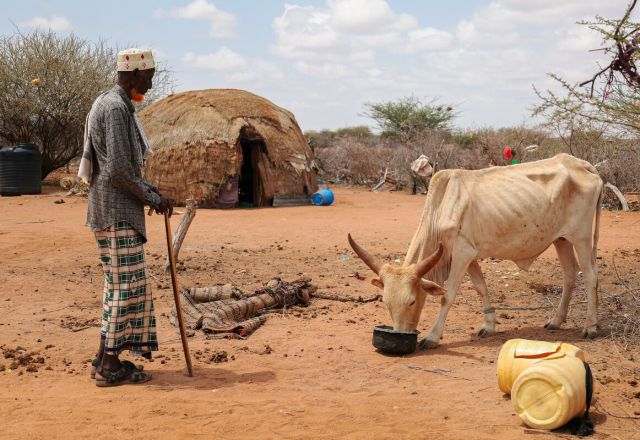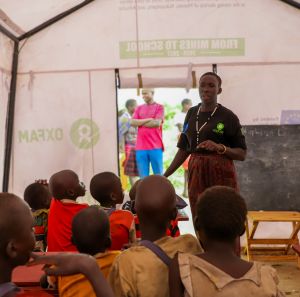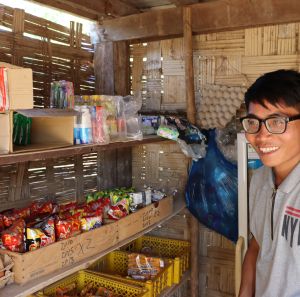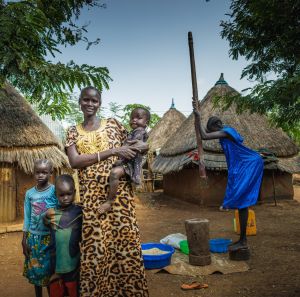Crisis in Kenya’s arid zones
Abdi’s family and hundreds of others are receiving cash from Arid Lands Development Focus (ALDEF) and Wajir South Development Association (WASDA). Two organisations working in collaboration with Oxfam and other humanitarian organisations to provide assistance to people who have lost livestock and may have trouble accessing food.
They are among 5.4 million people (seven percent of Kenya’s population) suffering from the prolonged drought in Kenya and now experiencing acute food insecurity. ALDEF and WASDA are part of a 30-strong member network of humanitarian organisations operating in the Arid and Semi-arid Lands (ASAL) in northern Kenya known as the ASAL Humanitarian Network.
Oxfam provides funds and other forms of support to their work in the ASAL areas.
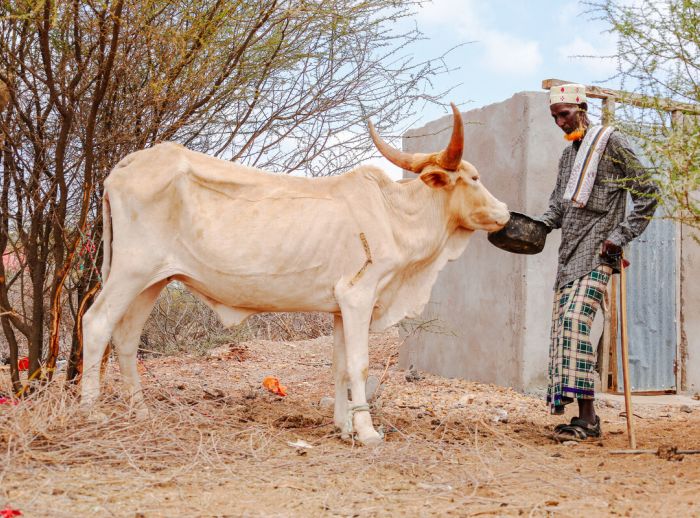
Oxfam’s work in Kenya is part of a larger effort across East Africa, a region facing dire rainfall deficits for five years now. Pastoralist families, which rely on raising livestock for their livelihood, have been severely affected in most of Somalia, northern areas of Kenya, and in the Somali region of southern Ethiopia.
Humanitarian groups estimate there are more than 28 million people across Somalia, Kenya, Ethiopia and South Sudan facing crisis levels of hunger. The situation has grown worse over the last year due to the changing climate that is altering rainfall patterns, and war in Ukraine that cut off a vital source of food imports at a time when food prices were already climbing. Women and children are particularly vulnerable in this crisis, as children are missing school and women and girls are suffering higher rates of gender-based violence.
Oxfam is working to reach 1.3 million people across East Africa, collaborating as much as possible with local and national groups such as the members of the ASAL Humanitarian Network in Kenya. In addition to providing cash, Oxfam works with groups that are repairing wells and other infrastructure for clean water and sanitation, and promoting good hygiene. These measures are designed to help families prevent water-borne diseases that can be deadly for malnourished people, particularly children.
Cash an effective form of aid
In areas experiencing successive years of drought where people are having trouble meeting their basic needs, distributing cash can be one of the more efficient ways to help. If there are functioning markets, people with cash can buy the food they need, which supports the local economy. Cash helps families avoid desperate measures such as selling off the assets they need to make a living, including surviving livestock at a time when prices are very low.
Cash proves to be useful to families in northern Kenya. Oxfam is working with Strategies in Northern Development (SND) in Marsabit county, where they distributed cash to 599 families comprising about 3,395 individuals. Each household received 8,956 Kenyan shillings (€ 65) per month for five months in 2022. The families receiving the cash were coping with critical levels of acute food insecurity.
Assessments by Oxfam and SND showed that the families receiving cash in Marsabit were able to improve their food consumption, consume a more diverse diet, and nearly double their monthly budget. However the benefits of distributing cash were offset by the same macroeconomic facts affecting families in Europe and North America: They were expending a larger proportion of their budget on food than before, largely due to a “sharp rise in prices of basic commodity[ies]…due to the drought crises and other external factors (e.g., rising fuel prices etc.), which erode the purchasing power of households,” according to a report by Oxfam staff in Kenya.
